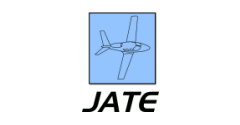Author Background
Dr. Stephen Rice is an associate professor at Embry-Riddle Aeronautical University, Daytona Beach. He received his PhD in human factors from the University of Illinois at Urbana–Champaign in 2006. His research interests include aviation psychology, automation, trust, stigmas, and human performance.
Dr. Scott R. Winter is an assistant professor at the Florida Institute of Technology. He completed his PhD in aviation technology from Purdue University in 2013. His research interests have centered on decision making, pilot training, and aviation human factors.
Dr. John Deaton is a professor at the Florida Institute of Technology. He completed his PhD in applied experimental psychology from the Catholic University of America in 1988. His research interests include cross-cultural training, knowledge management, and content development.
Dr. Ismael Cremer is an assistant professor at the Florida Institute of Technology. He completed his MS in environmental science and engineering from the King Abdullah University of Science and Technology in 2010 and completed his PhD at the Florida Institute of Technology in 2015. His research interests include environmental science and aviation sustainability.
Abstract
Prior research has examined how individuals place trust in single (e.g., Meyer, 2001, 2004) and multiple (e.g., Geels-Blair, Rice, & Schwark, 2013) automated devices when one fails. This has shown that participants are influenced by system-wide trust (SWT). What has been missing is an investigation into what types of people succumb to SWT effects. The current study attempts to replicate SWT findings and identify possible predictors of individuals likely to be influenced by SWT. The findings did demonstrate a replication of SWT. The study found that ‘‘feelings of negativity when automated devices fail’’ was a significant predictor of SWT theory.
Recommended Citation
Rice, Stephen; Winter, Scott R.; Deaton, John E.; and Cremer, Ismael
(2016)
"What Are the Predictors of System-Wide Trust Loss in Transportation Automation?,"
Journal of Aviation Technology and Engineering:
Vol. 6:
Iss.
1, Article 1.
Available at: https://doi.org/10.7771/2159-6670.1120
DOWNLOADS
Since October 06, 2016
COinS


